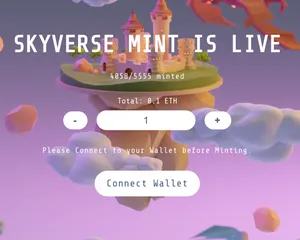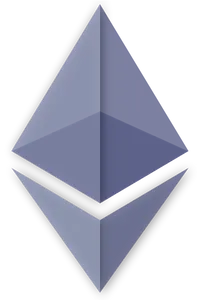RCMP says more than $2 million has been lost to crypto scams in Richmond, B.C. since January
Shareholders file a class-action suit against Coinbase over deceptively positive statements
Fake SkyVerse project draws in more than $150,000
NFT collector gets $280 top bid for the Jack Dorsey tweet NFT he bought for $2.9 million last year
Ethereum transition to proof-of-stake delayed again, as is tradition
The project has been delayed so many times that it has become a bit of a running joke — crypto critics regularly describe the Ethereum PoS migration as something that has been "only six months away" for several years now. Meanwhile, it has proven a useful way for Ethereum fans to dismiss the valid concerns about the enormous energy expenditure of their preferred blockchain, as though enormous emissions and e-waste are somehow a non-issue if there is some vague plan at some perpetually-in-the-future point to move away from them.
Anyway, Ethereum developers have projected new levels of optimism lately, with several of them describing "the merge" as imminent — I believe a June timeframe was the popular estimate. Unfortunately, this appears to have been just as unachievable as the prior "deadlines", with an Ethereum core developer stating it was now looking like it wouldn't happen until some time this autumn. This is particularly brutal timing, given Nilay Patel's interview yesterday with a16z's Chris Dixon, where he confidently pointed to an early July "merge" date (only to become substantially less confident when pressed on specifics). Anyway, see you this fall for the next hype cycle — between now and then, Ethereum will have again consumed energy comparable to the amounts used annually by some small countries, for little if any useful purpose.
- Tweet by Tim Beiko
- "Ethereum energy consumption", Ethereum.org
Texas Securities Commissioner issues emergency order to stop a metaverse casino
In the order, the Commissioner alleged that the project was "leveraging interest in metaverses to perpetrate a high-tech fraudulent securities offering", and had been falsely claiming to their followers that securities laws don't apply to NFTs. "They are misleading purchasers by claiming they can simply avoid securities regulation by implementing illusory features or use different terminology," the Commissioner's announcement said.
Science fiction author Pierce Brown cancels NFT project after negative fan response
The day after the announcement, Brown released a statement saying that he had been drawn in by the hope that NFTs would allow him to avoid "big companies whose sole focus is strong-arming away the rights to projects they've never been a part of to turn a big profit." He wrote, "I felt that if I didn't jump on it myself, someone else would, without the love, care, and artistry we believe in". He concluded that, given the response from his fans, he would not be continuing the NFT project. Some encouraged him to use the artwork that had already been created for merchandise or other non-NFT art sales.
- Tweet by Pierce Brown announcing the project
- Tweet by Pierce Brown announcing the project's cancellation
Someone once again appears to trade on insider knowledge of Coinbase listings
The day after the announcement, crypto influencer "Cobie" wrote on Twitter, "Found an ETH address that bought hundreds of thousands of dollars of tokens exclusively featured in the Coinbase Asset Listing post about 24 hours before it was published, rofl". The wallet had spent around $400,000 on multiple currencies listed in the announcement, which certainly appears as though they knew about the contents of the announcement before it was published.
This is not the first time allegations of insider trading have been made based on Coinbase announcements. In February, a trader made a profit of over $700,000 by trading on what appeared to be advance knowledge of two upcoming Coinbase announcements.
The Wikimedia community formally requests that the Wikimedia Foundation no longer accept cryptocurrency donations
The community member writing the closing summary of the discussion wrote that "Common arguments in support include: issues of environmental sustainability, that accepting cryptocurrencies constitutes implicit endorsement of the issues surrounding cryptocurrencies, and community issues with the risk to the movement's reputation for accepting cryptocurrencies.... Excluding new accounts and unregistered users, the tally is 232 to 94, or 71.17% in support of the proposal. These results indicate overall community support, with a significant minority in opposition. Thus, the Wikimedia community requests that the Wikimedia Foundation stop accepting cryptocurrency donations."
Attacker cashes out more than $11 million from Elephant Money in a flash loan attack
Elephant Money is a defi project with some questionable promises — its Twitter account advertises that people can "earn 672% APY", and a recent tweet encouraged people to use Elephant Money "as your new bank: Your share of ELEPHANT tokens can be compared to your debit account, except that it also generates you money. Stampede Perpetual Bonds is your retirement fund." Hopefully no one took them up on their suggestion to put their debit account balance or retirement money into the project.








